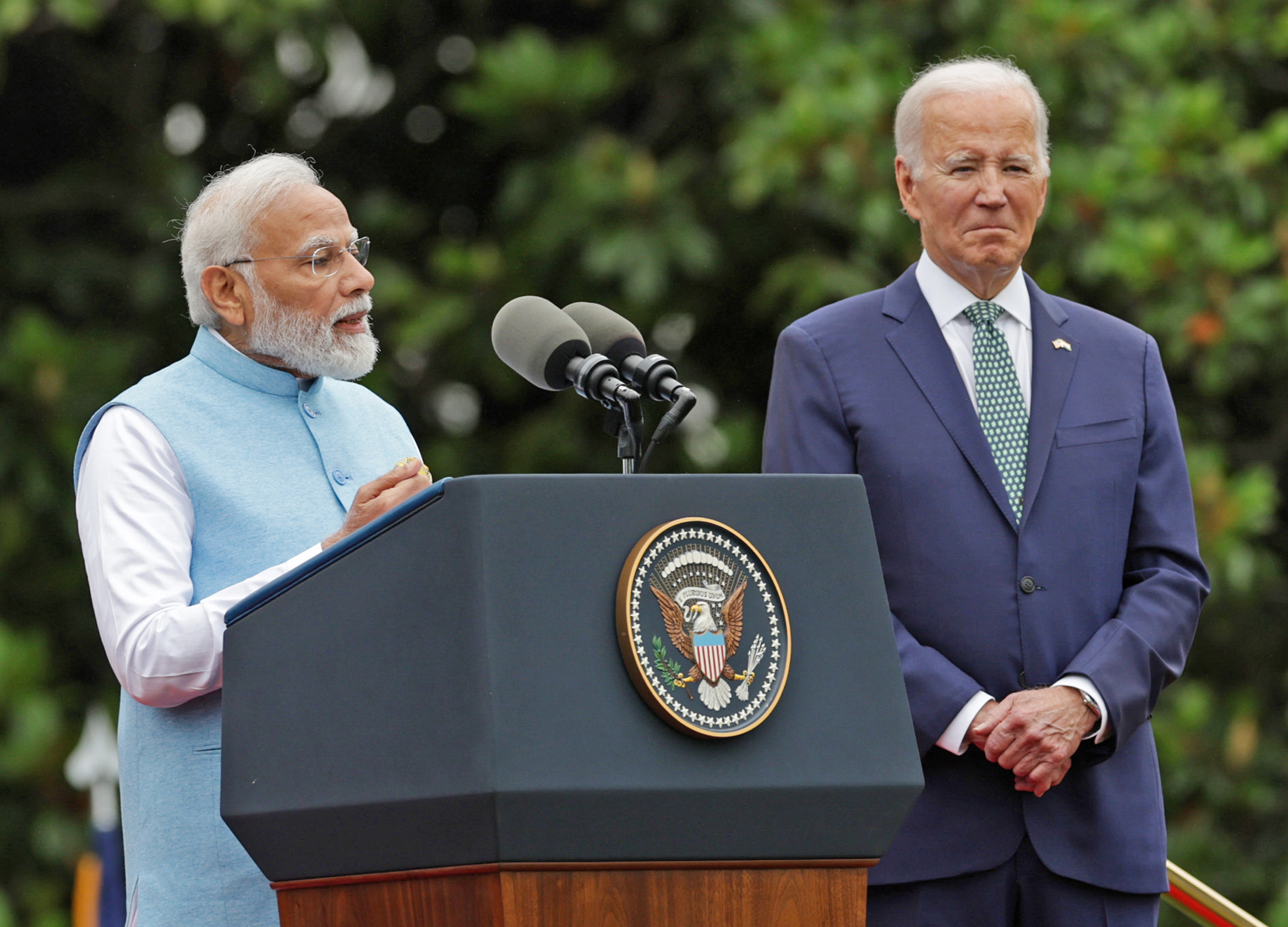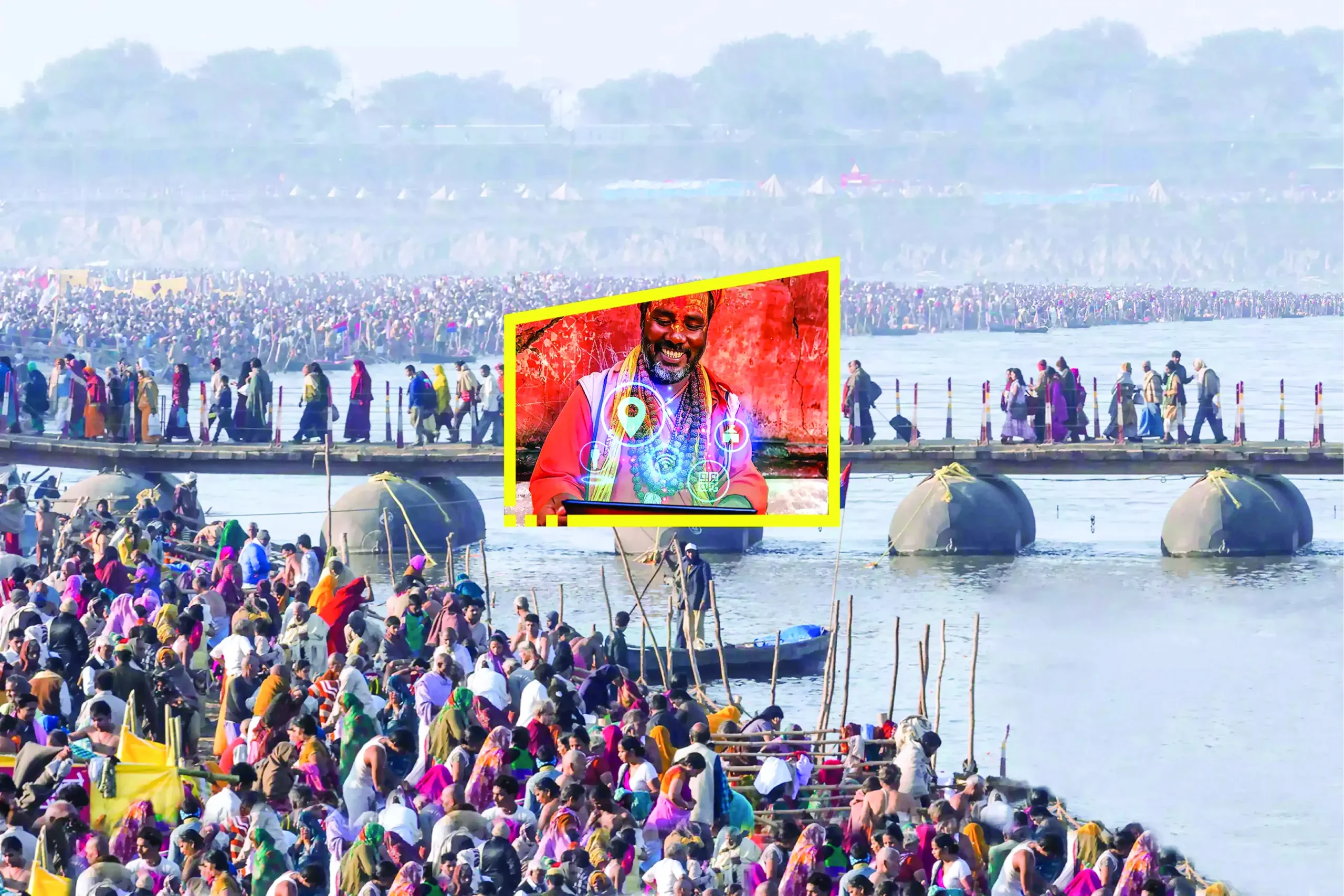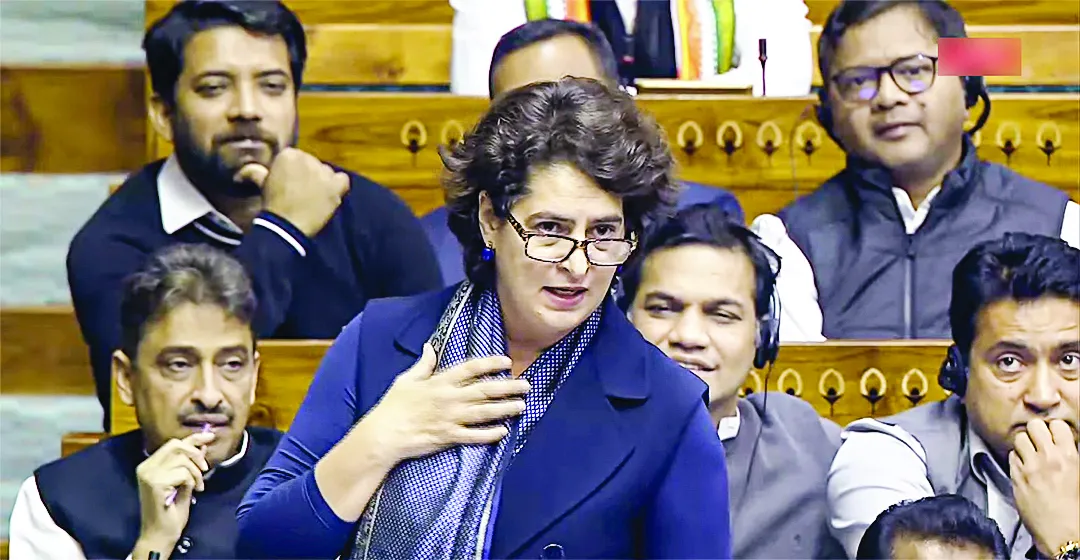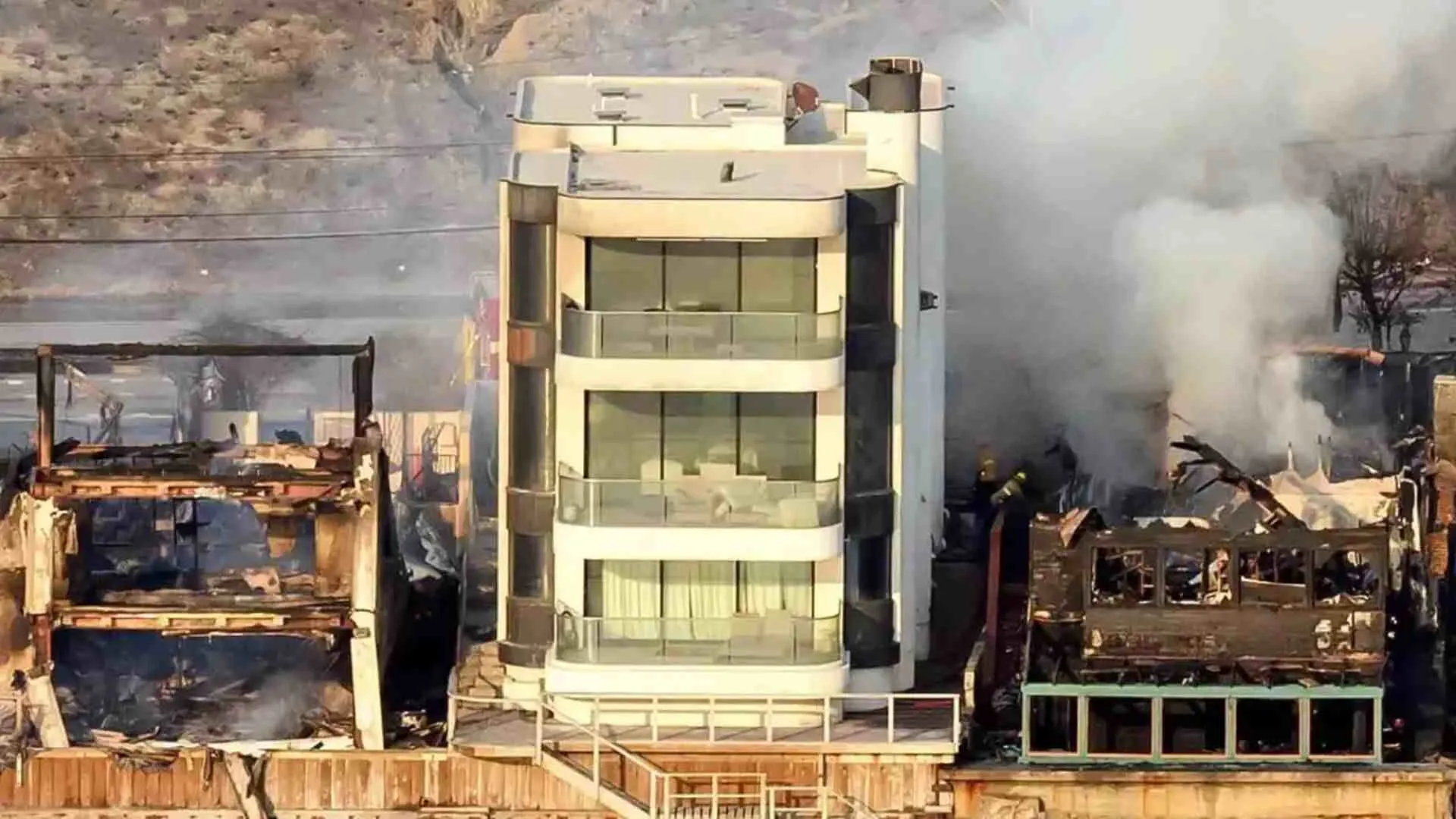India has always given priority to responsibility towards the world and the resolve to serve
humanity.
Prime Minister Narendra Modi
A robust foreign policy is of immense significance in today’s highly interconnected and interdependent world. A country’s standing in the global order is determined by its ability to maintain socio-economic and political ties with other countries. In this context, from world leaders to several domain experts and well-known personalities agree that Prime Minister Narendra Modi has redefined India’s significance in the global order and linked it with India’s rapid socio-economic growth. The Prime Minister has carved out a niche for himself in pursuing diplomatic ties. His diplomacy goes beyond the path of orthodox diplomacy pursued by foreign policy advisors. This, along with PM Modi’s personal ties with foreign nationals, has furthered the Indian nation’s and its people’s interests geopolitically and helped it mark a stronger global footprint.
CONNECTING WITH PRAVASIS
PM Modi stands out not just because of his in-depth understanding of an issue, or his holistic view of the people and the environment in which the issue is located, but by adopting unique ways of reaching out to leaders and their representatives while promoting India’s culture. This outreach paves the way for a lasting impression which also translates into new initiatives, apart from enhanced international support strengthening national ties not just within Indians in India, but also throughout the world. PM Modi’s unique connection with the Indian diaspora has gone a long way in furthering India’s international ties. The Pravasi Bharatiya Divas Convention, a Government of India initiative, is a platform to engage and connect with overseas Indians and enable them to interact with each other.
As PM Modi says, “Inclusiveness and cultural diversity is the strength of the Indian community. We believe in ‘Vasudhaiva Kutumbakam’ one world, one family.”
PM Modi’s efforts have also been aimed at regaining lost pride in India’s shared heritage across the borders. He has made culture an intrinsic aspect of policy, especially in maintaining relations with India’s neighbouring countries. He has put special emphasis on familiarising the world with Ayurveda and reclaiming India’s Buddhist heritage. This has been advanced through conclaves, pilgrimage and heritage conservation. Establishing the Ramayana circuit has been another significant step in developing a shared heritage. PM Modi has not only projected India’s soft power globally, but has played a momentous role in unifying traditions that have got separated by international borders.
INDIA’S VOICE GOES GLOBAL
It is because of PM Modi’s leadership that India is now regarded as the voice of the Global South, as is becoming increasingly apparent during India’s G20 Presidency. This is a matter of immense pride for Indians. Through this platform, India hopes to further several positive agendas and steer important discussions on global issues that touch people’s lives.
The PM’s efforts in 2015 to ensure that 21 June was declared the International Day of Yoga by the United Nations have launched a people’s movement across the globe. People from all over the world have come to appreciate the many benefits of yoga and its overall significance. As we all saw during the Prime Minister’s ongoing visit to the United States, 21 June was celebrated as Yoga Day by representatives of several nations at the UN headquarters in New York, thus making a Guinness World record for the maximum number of nationalities participating in a yoga session.
This was in keeping with the Prime Minister’s conviction, “Let us use the power of yoga to build bridges of friendship, a peaceful world, and a cleaner, greener and sustainable future. Let us join hands together to realise the goal of, ‘one earth, one family, one future’.”
In fact, several examples can be given of PM Modi’s efforts towards rejuvenating Indian culture, heritage and tradition globally, such as the inauguration of the renovated 200-year-old Shreenath-ji temple in Bahrain’s capital; the building of the Swaminarayan-ji temple, which is the first Hindu temple in the UAE; and aiding Vietnam in restoring the UNESCO Heritage Cham Temple Complex.
GESTURES WITH A DIFFERENCE
PM Modi’s approach to multilateralism is based on his deep understanding of the importance of fostering international relations and maintaining them. Even before he became Prime Minister of India, he was actively connected with Indians abroad. This global network helped him get a firmer grip on the socio-economic climate internationally and simultaneously nurtured his sensibility towards implementing successful initiatives in India. PM Modi’s use of India’s soft power has translated into instances where leaders abroad have made unique gestures to show their appreciation of and reciprocate the PM’s overtures. Papua New Guinea’s Prime Minister, James Marape personally receiving the Indian PM at the airport, while also touching his feet is one such instance. Angela Merkel, the former Chancellor of Germany, welcomed PM Modi at her country retreat at Schloss Meseberg. The late Shinzo Abe, former Prime Minister of Japan, welcomed PM Modi at his personal residence at Yamanashi. Some nations have conferred their highest national awards on him, including Saudi Arabia, UAE, Palestine, Russia, and the Maldives to name a few. PM Modi receiving the highest civilian awards of Papua New Guinea, Fiji and Palau recently is also a testament to how world leaders have come to respect India’s position on the world stage.
GIFTS WITH A THOUGHT
PM Modi is also an amazing host. Any world leader visiting India would vouch for this fact. Watching the India-Australia Test Match with Australian Prime Minister Anthony Albanese in Ahmedabad earlier this year is a testament to this. From taking French President Emmanuel Macron on a boat-ride across the Ganga to treating Japanese Prime Minister Fumio Kishida to golgappas, showcasing Indian culture has been the constant refrain in every act of PM Modi’s soft diplomacy. Additionally, PM Modi has redefined India’s soft diplomacy and reiterated India’s cultural significance while giving gifts to foreign dignitaries. Every single gift has been thought through and has helped enhance the respect India and its art and culture command worldwide, apart from helping strengthen ties. These gifts are not alien to the context in which they are given and are mindfully chosen by PM Modi himself for his counterparts. Several of these gifts are crafted in India and generate awareness about our dying arts. When US President Barack Obama presided over the Republic Day celebrations in 2015, he was honoured with a copy of the American telegram read out to the Constituent Assembly in December 1946. At the founding conference of the International Solar Alliance, President Macron was gifted with a replica of a Pala Dynasty Surya (sun). The then Australian Prime Minister Tony Abbott was given Australian lawyer John Lang’s 1854 petition on behalf of Rani Lakshmibai against the East India Company. All unique gifts, these had a positive impact on India-Australia ties.
PM Modi is also unique in the way he conducts himself on his foreign tours, as his innately Indian ways even when abroad are appreciated. He greets everyone with a “namaste”, instead of a handshake; exchanges special greetings with US President Joe Biden during a visit to a mangrove forest in Bali; and his fasting during foreign trips generates curiosity and respect for India’s traditional values and culture. On the first day of PM Modi’s ongoing visit to the US, he met with several eminent personalities and experts from various fields and held meaningful discussions with all, which again proved of PM Modi’s rising influence in the world, which is set to further increase India’s influence.
PM MODI’S CONNECTIONS BENEFIT INDIA
PM Modi’s connection with several global leaders started from the time he was the Chief Minister of Gujarat. These carefully fostered connections over a long period of time have helped Gujarat and India gain immensely.
PM Modi’s visits abroad in his personal or professional capacity have resulted in the introduction of new and futuristic technology in the country. For the PM, his foreign visits are about how these can initiate development initiatives in India. One example of this is how PM Modi’s visit to Japan as the then Gujarat Chief Minister eventually resulted in a civilian nuclear deal, which allowed Japan to export nuclear technology to India. In fact, the Vande Bharat train, which has been inspired by the Japanese bullet train, is an example of how transformative these visits can be. When Japan’s former Prime Minister, the late Shinzo Abe visited India and addressed the Parliament in 2007, he had mentioned India-Japan relations as a “confluence of the two seas”. When PM Modi came to the helm of affairs in India in 2014, defence exports opened up and military drills were conducted. Japan’s investments started for the development of India’s Northeast, the first nation to do so, which furthered Japan’s allegiance towards India in the face of China’s rise.
PM Modi is a man of bold decisions. There are numerous instances where PM Modi used his connect with his foreign counterparts to achieve the “unthinkable” for the good of Indians, Operation Ganga being a prime example of it. Even President Vladimir Putin temporarily stopped his war in Ukraine when requested by PM Modi, so that Indian students could be evacuated from the warzone, safely and successfully. That evacuation operation is regarded as one of the most well-coordinated missions and a massive humanitarian effort conducted by any country. PM Modi attributed its success to India’s growing influence. It is PM Modi’s pioneering vision that has led to several such initiatives being taken, helping India garner great respect globally. It was again because of the PM that India successfully got 2023 marked as the International Year of the Millet.
In conclusion, PM Modi’s vision has proved to be transformative for India’s foreign policy, making it more dynamic. His vigorous pursuit of the policy of multilateralism has enhanced India’s position internationally, while continuing to benefit the country continuously.























